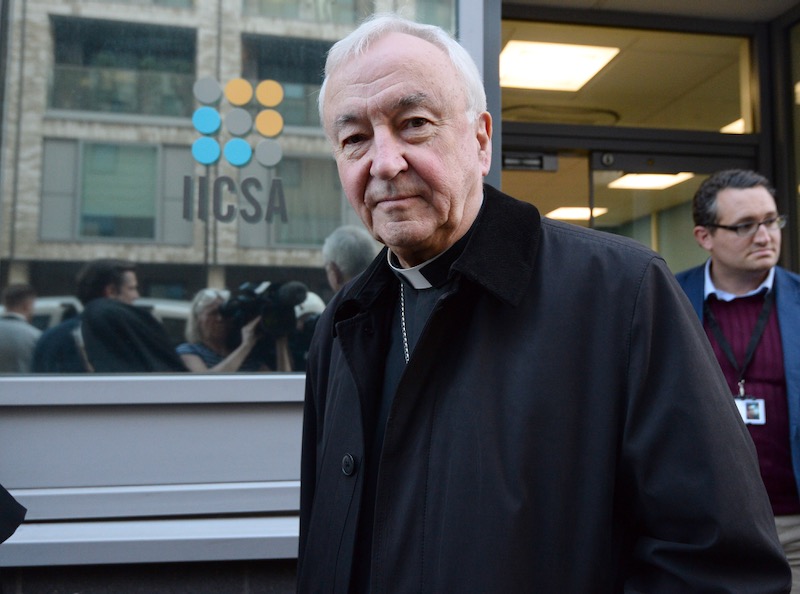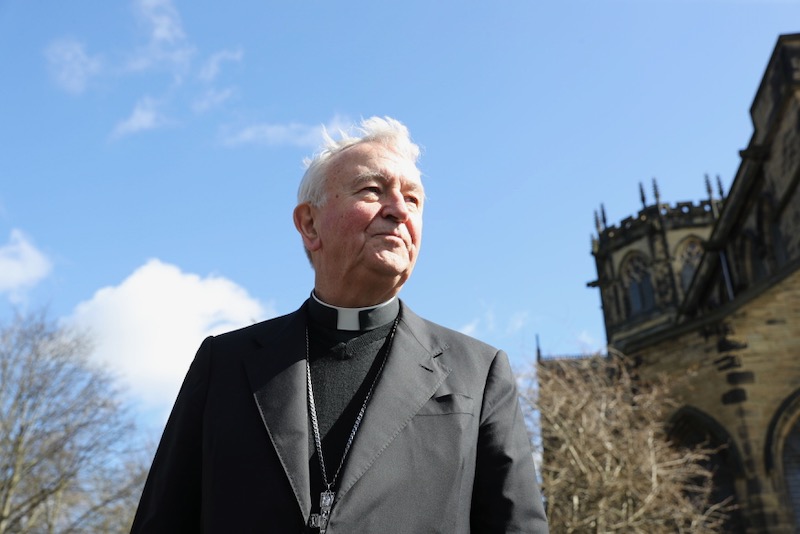Editorial comment by The Tablet: this leader will appear in the print edition of The Tablet this week.
Leaders of the Catholic Church in England and Wales repeatedly failed to recognise and address the serious harm done to victims and survivors of sexual abuse by priests, according to the report of the statutory inquiry into institutional abuse published this week. It is a fair assessment. The essence of the charge is that while senior figures acknowledged the existence of abuse and indeed of the harm it did, that was in the head rather than the heart. What was lacking was empathy and compassion – and a sense of urgency. For a Church which preaches the Gospel, where empathy and compassion are of the essence, that is a lamentable conclusion. It ought to lead to some serious heart-searching in high places.
The latest report by the Independent Inquiry into Child Sex Abuse (IICSA) completes a set of inquiries into specific areas of the Catholic Church’s life, and reaches some general conclusions. It finds systematic lack of leadership, and names Cardinal Vincent Nichols, Archbishop of Westminster and President of the Conference of Bishops, in particular. He does not deny it. The report quotes him saying last year: “We humbly ask forgiveness ... for our slowness and defensiveness and for our neglect of both preventative and restorative actions.”
Nichols appears to have undergone a conversion of heart when he encountered the raw anger of abuse survivors during the visit of Pope Francis to Ireland in 2018. Earlier IICSA reports had found his record as a diocesan bishop responsible for safeguarding policies in Birmingham and Westminster to be seriously deficient. What these reports have not fully appreciated is the extent to which, structurally and culturally, the Catholic Church was ill-suited to respond to a major collapse of sexual discipline within the clergy, with more than 900 priests, monks and lay church workers implicated in some form of abuse. It accurately describes how the clerical establishment closed ranks, putting the Church’s reputation and the pastoral care of perpetrators above the needs of abused individuals. It does not begin to explain why that was almost inevitable, and how a body like the Catholic Church had reached a point where it could so seriously betray its own most sacred principles.
Nevertheless, Nichols’ plea for forgiveness – repeated in his response to the IICSA report – seems to have been heeded by Pope Francis, who has decided not to accept the cardinal’s resignation which he was obliged to submit last Sunday, on his 75th birthday. It might have been even better had the Holy See waited for IICSA's verdict. It came on the same day the Vatican published its remarkable report into the career of ex-Cardinal Theodore McCarrick, following a comprehensive scrutiny of who in the Church knew what, and when. It shows how high officials failed to pick up on, or chose to ignore, warning signs that McCarrick was a habitual abuser both of minors and adults. Among those who turned a blind eye was Pope John Paul II, who trusted his intuition regarding McCarrick and turned out to have made a disastrous mistake. But clearly the attempt to use the McCarrick affair as a weapon against Pope Francis has failed.
The Nolan report in 2001 urged the Catholic Church in England and Wales to aspire to “become an example of best practice in the prevention of child abuse and in responding to it” – a noble aspiration but still far from fulfilled. Two decades later the Church again stands shamed in the public pillory, while those it hurt so badly are still far from forgiving it, as today’s letter in The Tablet painfully demonstrates. They are angry, and they are entitled to be. The IICSA report amounts to a vote of no confidence, and it remains to be seen whether the bishops, who meet next week to discuss all this, can begin at last to put their own house in order.



 Loading ...
Loading ...